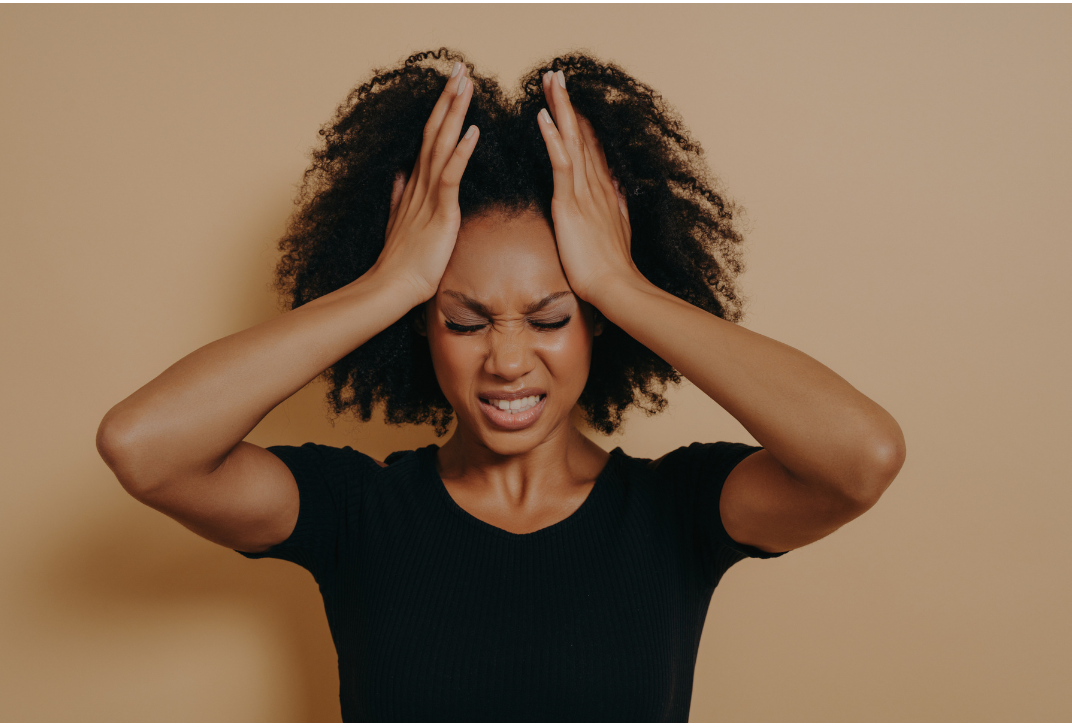
What You Need to Know About Menstrual Migraines
Share
For some people, pain with periods is more than cramps and pain in their lower body; they get menstrual migraines too!
Migraines are severe headaches generally associated with nausea and/or light and sound sensitivity. Menstrual migraines are migraines that occur around the beginning of the menstrual cycle (usually two days before to three days after the period begins). They are thought to be triggered by the normal decrease in estrogen levels that occurs before the start of a menstrual period. Menstrual migraines tend to be longer lasting, more severe, and more resistant to treatment than other types of migraine. Unfortunately, people with menstrual migraines may also have migraines at other times during the month.
Many people start having symptoms 24 to 48 hours before a migraine headache comes on. These symptoms may include increased yawning, a feeling of euphoria, depression, irritability, food cravings, constipation, and neck stiffness. Some people have something called a migraine "aura". An aura is a symptom or feeling that happens before or during a migraine headache. In most cases the aura affects your vision, so you may see flashing lights, bright spots, or zig-zag lines, have blurred vision or loss of part of your vision.
There are no specific tests or imaging required to diagnose migraines. A diagnosis can be made by a review of your medical history and symptoms and a physical exam.
Not everyone experiences migraines in the same way and people have different triggers and symptoms. Keeping a headache diary can often help people identify their individual triggers, which can help with avoiding or managing their migraines.
Common triggers include:
- Stress
- Hormonal changes, like the drop in estrogen which triggers menstrual migraines
- Changes in the weather
- Lack of sleep
- Bright or flashing lights
- Consuming alcohol, or eating certain foods, such as aged cheese or hot dogs
Treatments for migraines vary and depend on how severe they are. Mild migraines can often be treated with over the counter medications like Acetaminophen or anti-inflammatory medications like Ibuprofen or Naproxen. More severe migraine headaches may require treatment with prescription medication from a class of drugs called Triptans.
People who experience migraines that are recurrent and severe or affect your ability to function may want to talk to their doctor about taking a daily medication to decrease the frequency and intensity of their headaches.
For some people, hormonal treatments may be recommended to prevent menstrual migraines; for example, using combined hormonal contraceptives like birth control pills in an extended cycle or supplemental estrogen taken just before and during menstruation. These treatments work by preventing the rapid decline in the level of estrogen in the body before the menstrual period starts. People who get migraines with aura, however, usually cannot take these types of treatments because of concerns that treatments with estrogen might increase the risk of stroke. If you have menstrual migraines with aura, talk to your doctor about other treatment options.
If you experience menstrual migraines or migraines that aren't associated with a menstrual period and are looking for treatment or support, talk to your healthcare provider about medication options or other resources that may be able to help.
